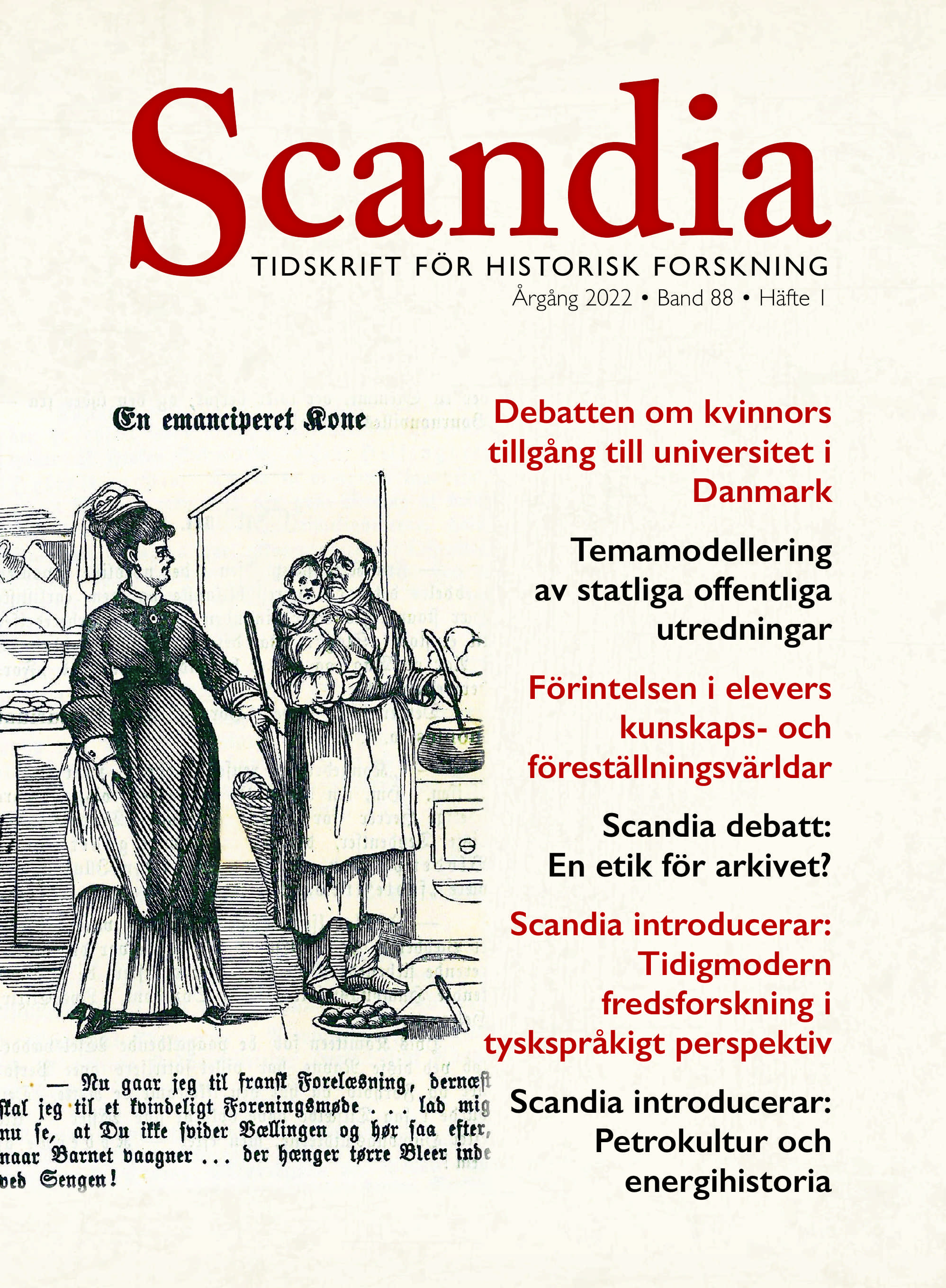Should women be physicians?
The debate on women’s admission to university studies in Denmark, 1851–1875
DOI:
https://doi.org/10.47868/scandia.v88i1.24205Abstract
In a reply to an application from Nielsine Nielsen, a female teacher wanting to become a physician, women were admitted to Denmark’s only university in Copenhagen in 1875 following a year and a half of debate among university and governmental authorities. Danish research on women’s access to academic education has focused on this debate, claiming that there was limited public interest. However, this article demonstrates that an ongoing public debate on women’s access to academic education in general and medical education in particular took place starting in 1851 (the year of the first notable public controversy on women’s rights in Denmark) only to heat up in the late 1860s – well before Nielsen’s application and approximately at the same time that women being admitted to universities became an issue in most European countries. The issues involved in this controversy were also similar to the ones raised in other European countries as well as in America: (1) the excess of women who could not marry made a compelling case for improved educational and employment opportunities for women; (2) when women’s physical and intellectual capabilities for pursuing an academic career were questioned, proponents of female physicians replied that special female talents made women ideal physicians; and (3) when opponents of women’s higher education claimed that medical education, especially coeducation, would ruin feminine delicacy and modesty, the proponents answered that female physicians were needed to treat women in order not to have their delicacy compromised by male treatment. This last stance turned the issue into one of women’s rights to choose their physicians rather than their careers, and it became the most compelling and influential argument around 1870, probably linked to the breakthrough of modernised and invasive gynaecological examinations. Nevertheless, this line of argument has so far been overlooked in Danish research. Even though radical demands for equal rights were put forward as well (e.g., following the translations of John Stuart Mill’s The Subjection of Women in 1869), this article points out that the main arguments for female physicians reinforced prevailing notions of true womanhood.





